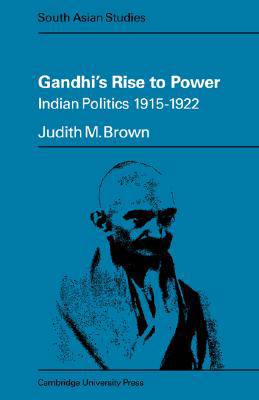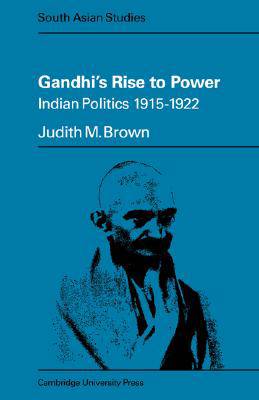
- Afhalen na 1 uur in een winkel met voorraad
- Gratis thuislevering in België vanaf € 30
- Ruim aanbod met 7 miljoen producten
- Afhalen na 1 uur in een winkel met voorraad
- Gratis thuislevering in België vanaf € 30
- Ruim aanbod met 7 miljoen producten
Zoeken
Omschrijving
Dr Brown presents a political study of the first clearly defined period in Mahatma Gandhi's Indian career, from 1915 to 1922. The period began with Gandhi's return from South Africa as a stranger to Indian politics, witnessed his dramatic assertion of leadership in the Indian National Congress of 1920 and ended with his imprisonment by the British after the collapse of his all-India civil disobedience movement against the raj. Focusing on Gandhi, this book nevertheless investigates the changing nature of Indian politics. It aims to study precisely what Gandhi did, on whom he relied for support, how he interacted with other nationalist leaders and how he saw his own role in Indian public life. Unlike the usual interpretation of Gandhi's rise to power as based on a charismatic appeal to the Indian masses, this study argues that his influence depended on a capacity to generate a network of lesser leaders, or subcontractors, who would organise their constituencies for him, whether these were caste, communal or economic groups or whole areas.
Specificaties
Betrokkenen
- Auteur(s):
- Uitgeverij:
Inhoud
- Aantal bladzijden:
- 404
- Taal:
- Engels
- Reeks:
- Reeksnummer:
- nr. 11
Eigenschappen
- Productcode (EAN):
- 9780521098731
- Verschijningsdatum:
- 25/10/1974
- Uitvoering:
- Paperback
- Formaat:
- Trade paperback (VS)
- Afmetingen:
- 140 mm x 216 mm
- Gewicht:
- 512 g

Alleen bij Standaard Boekhandel
+ 141 punten op je klantenkaart van Standaard Boekhandel
Beoordelingen
We publiceren alleen reviews die voldoen aan de voorwaarden voor reviews. Bekijk onze voorwaarden voor reviews.











